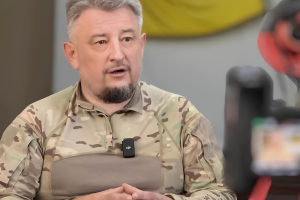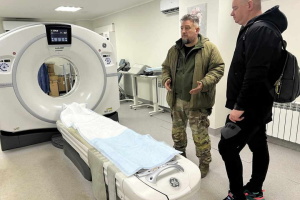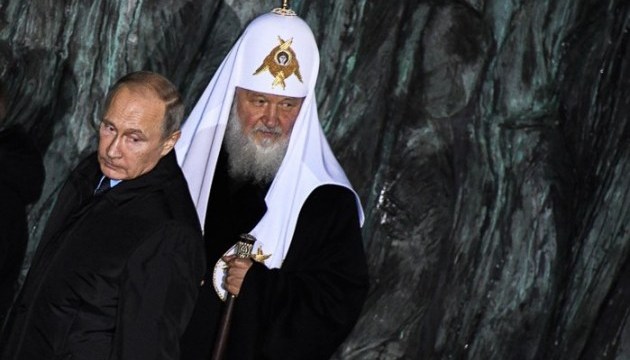
(Un)Holy war. How Putin destroyed freedom of religion in Russia and is trying to repeat it in Ukraine
The particular cynicism of such accusations lies in the fact that long before a full-scale war, the Kremlin purposefully turned the Russian Orthodox Church and all its foreign branches into a full-fledged tool of aggression. For example, in May 2024, one of the UOC MP clerics from Khmelnytskyi was accused of spreading hostile propaganda among believers. In March, a UOC MP priest from the Kherson region was arrested on suspicion of collaborationism. In October 2023, a cleric of the UOC MP from the Sumy region was sentenced to 15 years in prison for gathering intelligence for the enemy’s benefit.
The abuse of the UOC MP clergymen could not remain without reaction. It is worth mentioning at least about the destruction suffered by the objects of the National preserve “Kyiv-Pechersk Lavra”, during the years of the “canonical” Orthodox Church management. And the notorious “kiosk temple” in Kyiv, that has been dismantled not at all over its religious affiliation, but because it had been illegally erected on the territory of the National Museum of Ukraine's History. But Russian propaganda tries in every possible way to portray this as an encroachment of the “Kyiv regime” on the freedom of conscience. However, religious persecution does occur on the Ukrainian temporarily occupied territory, and it's perpetrated by Russia as Moscow exports the principles of its own domestic policy, where is no place for either freedom or conscience.
No freedom and no conscience
It is worth noting that the attack on freedom of religion in Russia began during the Boris Yeltsin era, when in 1997 a law was adopted, laying down a division between “traditional” and “non-traditional” religions. Thus, a silent fight against “unwanted” religious organizations, foreign missionaries, etc., began under the slogans of fighting against destructive sects and cults. The outright attack on freedom of religion was unleashed in 2016, after the parliament passed an infamous package of laws, known collectively as the “Yarovaya Law”, significantly curbing the activities of religious organizations. The following year, the restrictions turned into oppression: Jehovah’s Witnesses were recognized as an extremist organization, being subjected to a ban and effective liquidation. Thus, nearly 172,000 Russian Jehovah’s Witnesses were outlawed. Even their rendition of the Bible was banned, as was the JW Library mobile app.
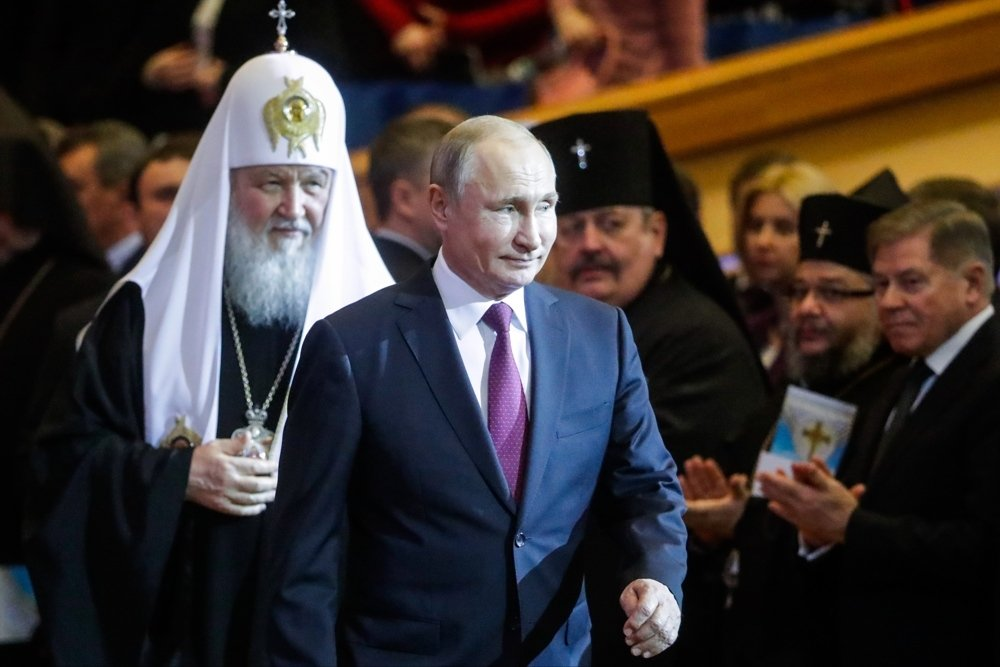
At the same time, persecution of believers unfolded: according to reports, as of March 2023, more than 700 Jehovah’s Witnesses came under pressure from the Russian security forces, about 100 of whom were sentenced to real imprisonment. The number of people persecuted for their faith is constantly increasing. Thus, in December 2023, the Russian court immediately sentenced 20 Jehovah’s Witnesses from Surgut, who were tortured in the building of the Investigative Committee. After being detained they were: beaten, doused with water, tortured with electric shocks, and so on. Also, on March 29, a court in Tolyatti sentenced one Jehovah’s Witness to eight years in a general regime colony. However, not only Protestants are persecuted in the Russian Federation. For example, on April 25, a 57-year-old parishioner of the local Greek Catholic Church stood trial in Omsk for “rehabilitating Nazism” and “offending religious feelings of believers”, who now faces up to three years in prison. And on April 15, in Noginsk near Moscow, the only the Orthodox church of Ukraine in Russia was demolished by bulldozers…
The Kremlin’s repressive policy did not pass by Russian Muslims either. Putin, during his rule, created a system of “state-run Islam” subordinating the majority of Muslims to politically loyal to the Kremlin muftis. A wide range of pressure means was used to fight against those who did not want to adhere to the “single correct” line: “extremist” literature lists, sudden “exposures of dormant cells” of various terrorist organizations, manipulation of permits for the operation or construction of mosques, etc. The Muslims conviction for involvement in the Hizb-ut Tahrir organization is one of the repressive tools. According to the estimates of the Memorial, International Human Rights Organization, as of March 2022, at least 340 people have been convicted in Russia, as well as in the temporarily occupied Crimea.
“Religious” dictatorship for export
Religious intolerance came to Ukraine at the hands of Russian bayonets ten years ago, after the occupation of Crimea and part of Donbas. For example, in occupied Slovyansk, four members of the Transfiguration of the Lord Protestant Church were captured and killed in June 2014. And it was just the beginning. Since then, persecution on religious grounds, confiscation of churches, arrests, torture, and murders have become a common occurrence in the occupied Donbas. In the following years, most of the churches and religious communities there, of course, except for the “canonical” UOC MP, were forced to either stop their activities or go underground. Muslims were not spared persecution either. Back in May 2016, the occupation authorities declared the religious literature of the Donbas Muslim Religious Administration (Donbas muftiate) “extremist”, which became a reason for repression. In the same way, the structures of the Religious Administration of Muslims of Ukraine stopped working on the temporarily occupied territory of the Donetsk and Luhansk regions.
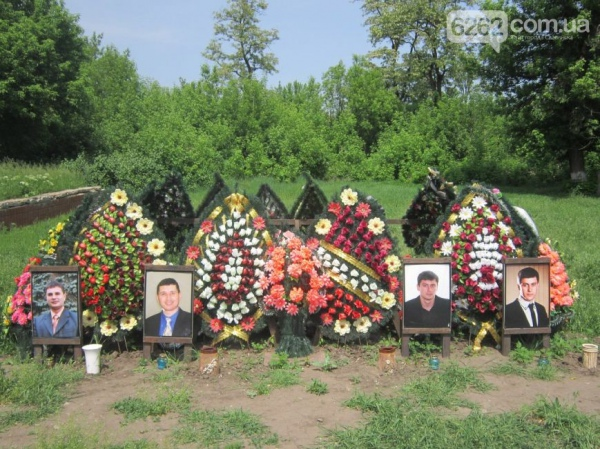
Protestants killed in Slovyansk were buried at the place of execution
With the same zeal, the occupiers started clearing the confessional field of the annexed Crimea. On the eve of the occupation, 45 parishes of the UOC of the Kyiv Patriarchate were active on the peninsula, and after a year of occupation, 11 remained. As of today, the UOC activities in Crimea have actually been suspended. Likewise, the Ukrainian Greek Catholic Church is under intense pressure, the number of its communities has halved. The faithful of various Protestant churches are facing the same threat as Protestants in the Russian Federation. As for the Muslims, after the occupation, they found themselves under double pressure, as the Kremlin is not only trying to force them into a ‘’loyal Islam’’ but also to suppress the Crimean Tatars, most of whom traditionally practice Islam. The realities of their everyday lives, since 2014, have been arrests, searches, fines, and false accusations. All this is the complete opposite of freedom of religion and any freedom in general.
The full-scale aggression against Ukraine became a reason to tighten the nuts in Russia itself, and also made it possible to realize the painful dreams of ruscism ideology about a “holy war”. All these years, the Russian Orthodox Church enjoyed a privileged position and was actually a beneficiary of religious oppression, willingly consecrating the so-called Special Military Operation, finally signing its religious bankruptcy. It is no longer about oppression, on Ukrainian territory, but about the open destruction of those, who do not meet the requirements of “canonicity”. According to estimates by the International Freedom of Religion and Belief Alliance (IRFBA), in the first two years of the full-scale war, Russian forces killed 30 Ukrainian clerics and imprisoned 26. Father Rostyslav Dudarenko was one of the first OCU clergymen killed by the occupiers after the start of the full-scale war: on March 5, 2022, he was shot dead at a checkpoint, during the Kyiv region occupation. And already in February of this year, Russians captured, tortured, and then killed OCU priest Stepan Podolchak in Kalanchak,
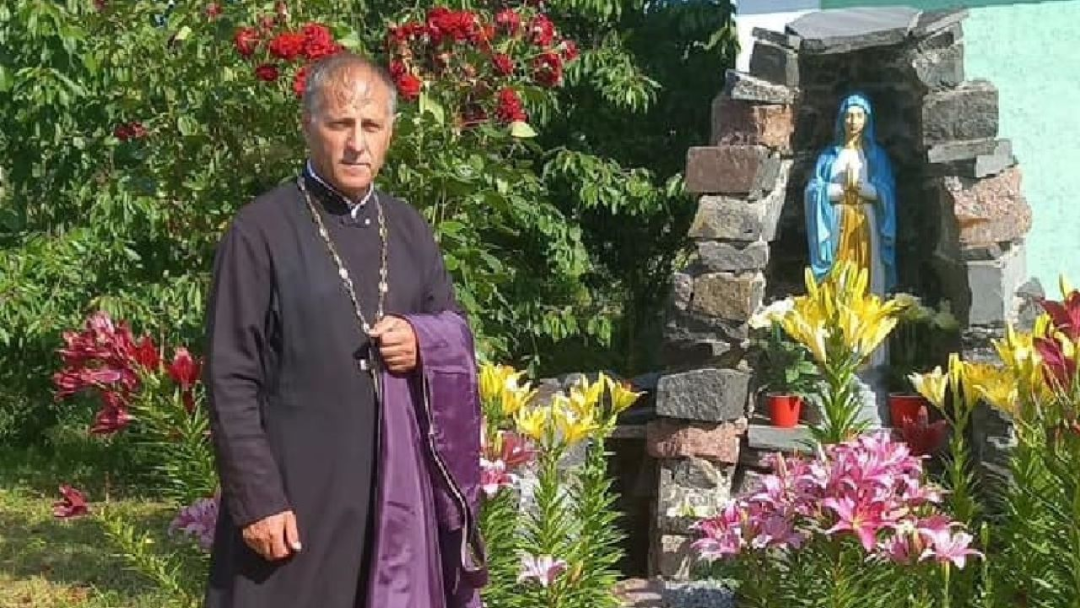
Priest Stepan Podolchak
The special cynicism of the Kremlin lies in the fact that the genocidal war is waged in particular under the slogans of “protecting traditional values” from some mythical “Western satanists.” In fact, the “Russian world”, that Putin is trying to spread beyond the borders of the Russian Federation, is a parody of everything that can be called values, formed by Christian civilization over thousands of years. In addition, modern democratic values have grown on this ground. One of these values is the freedom to practice any religion or not to practice any religion without being oppressed because of your choice.
The discrepancy between the Kremlin’s declarations and actions is obvious, but countering Russian propaganda still requires effort. And it is not only about thwarting Russia’s attempts to discredit Ukraine in the West through false accusations of “religious persecution”, but it is also about helping the world see the evil that the Putin regime has nurtured in Russia and is now seeking to spread far beyond its borders.
Center for Strategic Communication and Information Security
Title photo: EPA/UPG


